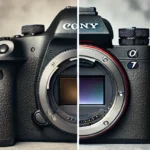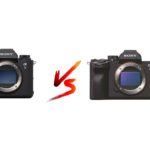Mastering Camera Settings for Perfect Wedding Photography: A Comprehensive Guide
Are you a wedding photographer struggling to achieve the desired results despite having top-notch camera gear? The culprit might not be your equipment, but rather the settings you use. In this comprehensive guide, we’ll delve into the intricate world of camera settings and how they can make or break your wedding photography.
Optimizing Picture Control or Picture Profile for Perfect Wedding Photography
Regardless of the camera brand you use, you’ll always find settings like Picture Control or Picture Profile. For optimal results, we recommend choosing a flat or neutral picture profile. Why? Because it offers a wider dynamic range, allowing you to capture more details in both highlights and shadows. Additionally, shooting in RAW format alongside a neutral picture profile gives you greater flexibility during post-processing. You can tweak colors, shadows, highlights, and more without compromising image quality.
Finding the Right Balance Between Manual and Automatic Settings:
While many professionals prefer manual settings for ultimate control, weddings present unique challenges that may not always allow for manual adjustments. With fast-paced events and ever-changing light conditions, being too rigid with manual settings can result in missed moments. It’s crucial to strike a balance between manual and automatic settings, allowing you to capture fleeting moments without sacrificing image quality. Remember, in wedding photography, every moment counts, and being adaptable is key.
Mastering Focus Modes:
One common mistake among wedding photographers is using the wrong focus mode, particularly when shooting with wide apertures like f/1.8 or f/2.8. In such scenarios, using AF-S (Single-Servo Autofocus) mode may result in missed shots, especially when capturing moving subjects. Instead, opt for AF-C (Continuous-Servo Autofocus) mode, which continuously adjusts focus to keep up with the action. Additionally, ensure that focus release is enabled to prevent the shutter from firing unless focus is achieved. This simple adjustment can significantly improve the sharpness and clarity of your images.
Harnessing the Power of Auto ISO and EV with Limiter:
Embrace the convenience of Auto ISO while retaining control over exposure. By setting an EV (Exposure Value) with a limiter, you dictate the range within which your camera adjusts ISO automatically. This ensures optimal exposure while preventing ISO from exceeding your specified limit, preserving image quality in varying lighting conditions.
In conclusion, mastering camera settings is essential for achieving exceptional wedding photography results. By optimizing picture profiles, striking a balance between manual and automatic settings, and mastering focus modes, you can elevate your photography to new heights. Remember, practice makes perfect, so don’t hesitate to experiment with different settings and techniques to find what works best for you. Happy shooting!
Wedding Photographers in Lucknow, Random Clicks Photography By Atul Ghosh & Vartika Jain
Cover Photo by Elviss Railijs Bitāns
Why is mastering camera settings important for wedding photography?
Mastering camera settings is essential for wedding photography because it allows photographers to capture moments with precision and creativity. Proper settings enable you to control exposure, focus, and other crucial elements, ensuring that you can adapt to various lighting conditions and capture the essence of each moment.
Which picture profile should I use for wedding photography?
For wedding photography, it’s often recommended to use a flat or neutral picture profile. This choice provides a wider dynamic range, allowing you to capture more detail in both highlights and shadows. Shooting in RAW format alongside a neutral profile gives you greater flexibility during post-processing, allowing you to fine-tune colors and exposure to achieve the desired look.
Should I use manual or automatic settings for wedding photography?
Finding the right balance between manual and automatic settings is crucial in wedding photography. While manual control offers precision, weddings are dynamic events where moments can unfold rapidly. Utilizing a combination of manual and automatic settings allows you to adapt quickly to changing conditions while maintaining control over key parameters.
What focus mode is best for capturing moving subjects at weddings?
When capturing moving subjects at weddings, it’s essential to use a focus mode that can keep up with the action. Continuous-Servo Autofocus (AF-C) mode is typically preferred in such scenarios. This mode continuously adjusts focus to track moving subjects, ensuring sharp and clear images even in dynamic environments.
How can I maintain optimal exposure in varying lighting conditions during a wedding?
Auto ISO coupled with Exposure Value (EV) settings and limiters can help maintain optimal exposure in changing lighting conditions. By setting an EV with a limiter, you can control the range within which your camera adjusts ISO automatically, ensuring that exposure remains consistent while preventing ISO from exceeding a specified limit, thus preserving image quality.
What should I do if I’m still struggling with camera settings for wedding photography?
If you’re still struggling with camera settings for wedding photography, don’t hesitate to experiment and practice. Familiarize yourself with your camera’s settings and capabilities by testing them in different lighting conditions and scenarios. Additionally, consider seeking guidance from experienced photographers or enrolling in workshops or courses focused on wedding photography techniques and camera settings. With time, patience, and practice, you’ll gain confidence and mastery over your camera settings, enhancing your ability to capture unforgettable moments on the big day.








